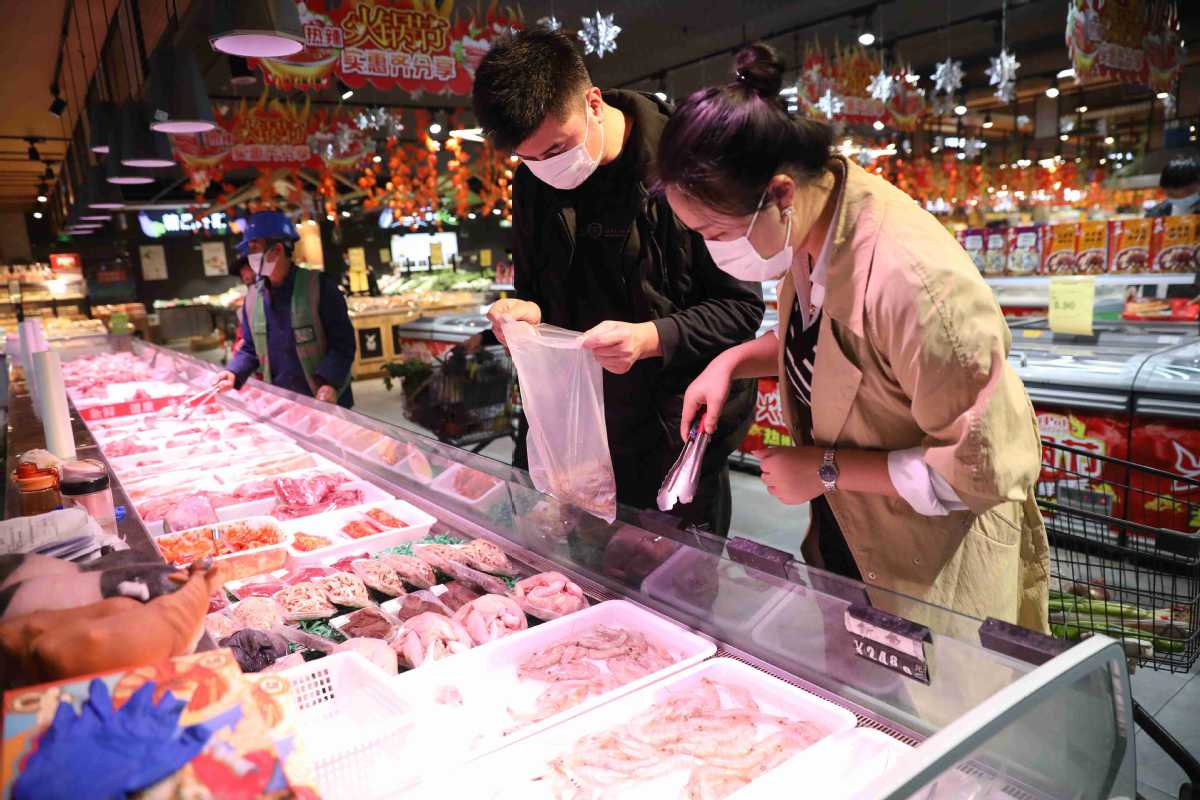On-demand at-home food prep gets cooking
By LIU YUKUN | China Daily | Updated: 2023-04-18 09:30

However, such services soon lost development momentum as the food delivery industry grew, while safety has been a lingering concern for both chefs and customers. The Go Home to Eat app, valued at 2 billion yuan after five rounds of financing in two years, had to suspend operations in 2020.
Zhu Danpeng, a food and beverage analyst and deputy head of the Guangdong Provincial Food Safety Promotion Alliance, said the boom in on-demand home cooking represents an upgrade in consumption and a change in consumer behavior.
Zhu said that with faster-paced lifestyles, an increasing number of people are not willing to cook due to a lack of time and tedious ingredient preparation. However, dining out or ordering takeaway may not meet the demand for healthy eating due to hygiene and food safety concerns. At this point, on-demand home-cooking services can satisfy both "not wanting to cook" and "having a good meal" needs with its high cost-effectiveness, which is gradually gaining acceptance among consumers.
"Going forward, with increasing demand for customized services and higher requirements for food safety and quality, the market will undergo further changes and will have broad prospects," he said.
Zhu added that the rise of on-demand home cooking also represents a new trend of flexible employment. Young people who like cooking can combine their hobbies with making money, use social media for promotion and bring fresh blood to the catering industry. For professional chefs, the choice to be a home cook helps offset the pressures of unemployment, allowing them to leverage their strengths while enjoying more flexibility and freedom.
According to a recent report by People Data, the flexible employment market in China continues to expand, with a growing variety of flexible work arrangements. In 2022, the scale of China's flexible employment market exceeded 1 trillion yuan, representing a yearly growth of 34.9 percent.
The report said in recent years, as digitalization drives traditional industries' transformation and upgrading, a new generation of emerging occupations, such as at-home chefs, at-home beauticians and milk tea tasters, are emerging, enriching the concept of flexible employment and providing new employment options for more people.
Despite the rapid development of on-demand home cooking, the industry still faces challenges, the report said. One major issue is the lack of standardization and regulation in the market. Unlike traditional restaurants, which are subject to strict health and safety regulations, on-demand home-cooking services remain unregulated, which has raised concerns about food safety and hygiene, as well as security for both chefs and consumers, and further market regulations are expected to address the problem.
























